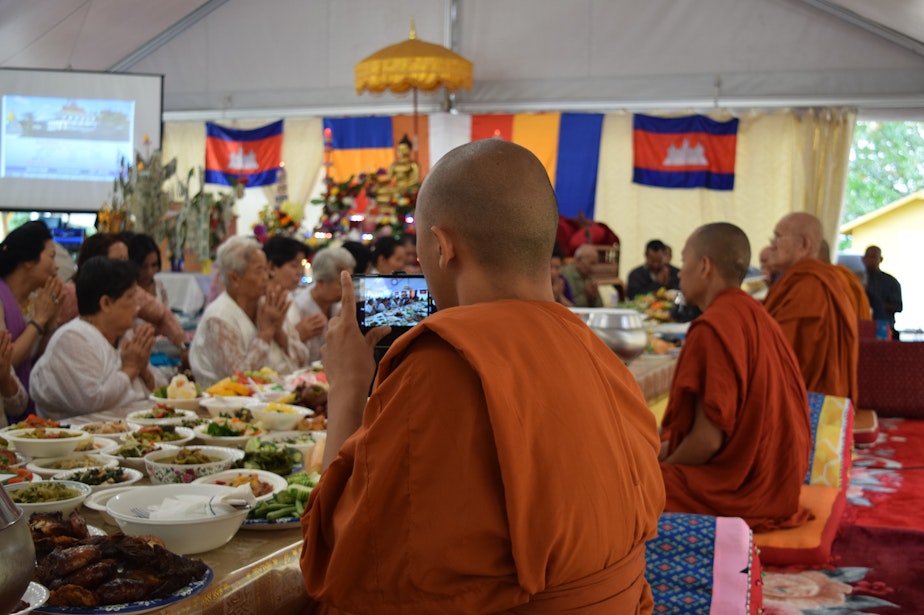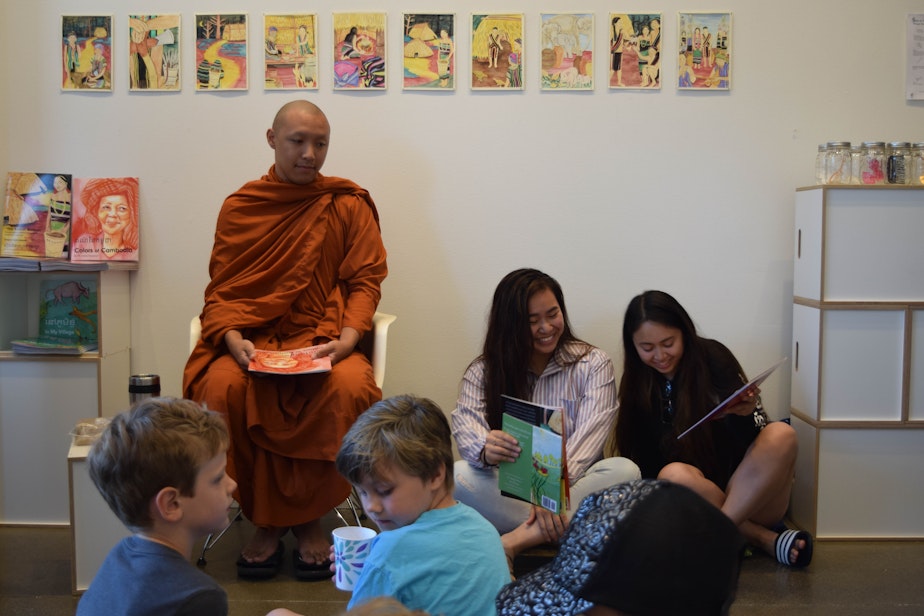How this young Buddhist monk uses Instagram to connect with Khmer youth

T
he Khmer Rouge genocide erased Khmer culture in Cambodia in the 1970s. As a result, some Khmer youth in America are now disconnected from their heritage.
Venerable Prenz Sa-Ngoun is a twenty-year-old Cambodian-American Buddhist monk who's trying to reverse this trend.
I was shocked when I saw the pictures that a Buddhist monk from my temple posted on Instagram. Venerable Prenz posts pictures of himself hiking and traveling around the world. I saw pictures of him studying for his college classes and visiting with his family.
Honestly, his Instagram looked a lot like everyone else's — except that he's a Buddhist monk with a mission to teach Khmer youth about their culture.
In one YouTube video, for example, Venerable Prenz teaches youth how to interact with him: "I've had experiences with people I've grown up with, and they just don't acknowledge me. I just want to point out that I'm a normal person. It's just that I'm in a robe."
Sponsored
I first met Venerable Prenz at my grandma's funeral, where he led blessing ceremonies.
Venerable Prenz told me that he became a monk when he visited Cambodia in 2012 to learn about his culture. He returned to America in 2013 and attended a Khmer student conference. There, he realized that Cambodian-American youth were out of touch with their culture.
"I was the only monk there," he said. "What really caught my eye was that many of the students didn't know how to greet me. Some of them were intimidated.
"I realized that there's a lack of communication between the generations about culture and religion."
Venerable Prenz decided to mend the disconnect between Khmer youth and their heritage.
Sponsored
"The best way right now to reach out to people about Buddhism or the Cambodian culture," he said, "is being able to go to where people are in the community or connect with them through social media."
His lessons help educate Cambodians, but he believes that we still need to improve the way that elders and youth interact. "Instead of working together and understanding that there is an issue," he said, "we end up just blaming each other."
As a Cambodian-American myself, I know what he means. I'm both a perpetrator and victim of that problem.
Sponsored
Let me paint a picture of a common occurrence in my household. My mom asks me, in Khmer, to get her a bowl. I bring her back a plate because that's what I infer.
She gets mad that I don't understand Khmer, but I argue that she never taught me the language. I respond to her in English when she speaks Khmer, so she says it's no use teaching me.
While we would like to speak Khmer more often, we usually only use it as code in public to say things like, "I'm going to the bathroom" or to prevent eavesdropping.
Khmer kids don't learn the language from their parents. That's why Venerable Prenz brings it to them through social media. However, elders think the youth should learn through observation at the temple.
"With the older generation," he said, "they're stuck on the older method. That's not their fault. It's just how they grew up, and it's how they've worked for all these years."
Sponsored
The older generation was stubborn, so Venerable Prenz needed to show more patience to see results.
"I had to learn how to control my feelings," he said, "control my emotions, control my replies, control my mind, because I needed to project positive feedback to have positive progress."

Right now, he's working on earning his degree at Green River College. Afterwards, he plans to launch a Khmer class in the Seattle area. Of course, he has other hopes.
"One of my main goals for being able to spread the culture is teamwork and understanding," he said. "When we're all able to work together, then we have everyone's perspective of what the Cambodian culture is."
Sponsored
I asked Venerable Prenz what he thought that I, as a Cambodian-American Buddhist girl, can do to help join his effort.
"Continue what you're doing as a journalist," he said. "Being able to hear and share other stories, I think that's the most powerful way to get out the message to be part of the movement."
That's why you're hearing from me today.
This story was created in KUOW's RadioActive Intro to Journalism Workshop for 15- to 18-year-olds at Jack Straw Cultural Center, with production support from Kamna Shastri. Edited by Joshua McNichols.
Find RadioActive on Facebook, Twitter and Instagram, and on the RadioActive podcast.



